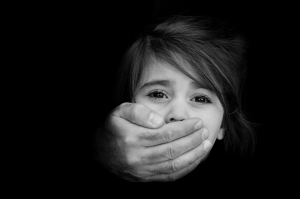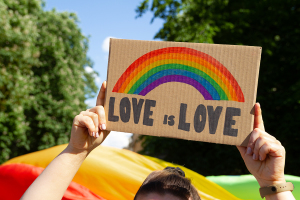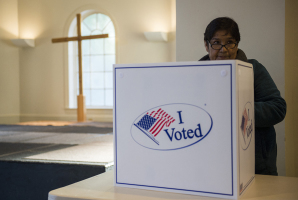An important insight about Gen Z

If you know anything about the younger generation, you know that many of these teens and young adults have a real passion for justice, even if misguided at times. Many of them are also highly empathetic, commonly siding with the perceived underdog and outcast. That’s why so many Gen Z young people stand with the LGBTQ+ community or even identify as such. It is an essential part of who they are.
All this is common knowledge, and it helps to explain why between 21-40% of Gen Z self-identifies as somewhere on the LGBTQ+ spectrum compared with less than 3% of Baby Boomers, even though relatively few Gen Z’ers engage in same-sex activity. It is a matter of solidarity more than practice.
That’s why one of the chapters in my latest book is titled, “If Gay Is Good, then Christianity Is Bad.” The Church must be rejected because it rejects the LGBTQ+ community.
What I recently discovered, however, is the degree to which these mindsets still influence and impact some committed Gen Z Christians. In light of this, how can we better serve them and help them fulfill their potential in the Lord?
Since 2004, I have spoken to countless thousands of people of all ages on issues related to LGBTQ+ and the Bible, following the divine mandate to “reach out and resist,” meaning, “reach out to the people with compassion; resist the agenda with courage.” Put another way, it is not a matter of grace or truth but of grace and truth.
Recently, I was speaking to hundreds of multi-national, Gen Z ministry students on this very topic, and as always, I did my best to speak with sensitivity and compassion.
I pointed to the hurt and rejection suffered by LGBTQ+ individuals over the years. I said that the vast majority of them are not activists and are simply trying to live their lives in peace. I emphasized that many of them feel hated by God and the Church. And I explained that some of our Gospel cliches are highly offensive to them. For example, when we say, “Love the sinner and hate the sin,” they hear, “You hate me, since this is not what I do. This is who I am.”
I shared with tears stories of young people “detransitioning” after having life-altering hormone and surgery treatments as teens. And even when I showed shocking examples of LGBTQ+ indoctrination of little children, I explained that those involved, be it the parents or the teachers, really thought they were doing a good thing.
So, the presentation was as caring as could be, spoken with a heart of love.
Yet when most of the students laughed out loud when I read off lists of the latest preferred gender pronouns, a small minority of the students were offended. They felt as if everyone was laughing at one of their friends or loved ones and as if I was ridiculing one of their friends or loved ones.
One young woman from Latin America, herself a former lesbian, wanted to talk with me before class one day. Speaking with love, respect, and honor, she told me that, years earlier, “It was because of men like you that I left the Church.”
She fully recognized my love for her and for those who still identified as LGBTQ+, and she acknowledged the care with which I spoke. But when I had addressed the destructive fruit of LGBTQ+ activism, drawing reaction from the students, I crossed a forbidden line. That’s how deep her sense of empathy was with her former community.
Later that same night, one of the ministry leaders shared something with me that absolutely shocked him.
During my final session, where I talked about the larger culture and how we got to where we are today, I showed the powerful and creative video of Messianic Jewish Gospel singer Beckah Shae titled “If Sam Smith and Kim Petras’ ‘Unholy’ were a Christian song by Beckah Shae.” The video became especially relevant after the overtly satanic performance of “Unholy” at the Grammys, where Smith wore a hat with devil’s horns, just one of the many truly demonic features of the performance.
Before I showed the students the video, my only mention of Smith and Petras was to say that Smith identified as non-binary and Petras identified as transgender. Then I briefly described what happened at the Grammys. (Many were already familiar with what had taken place.) I then played Beckah’s video, which changes the call to do something unholy into a call to accept God’s love, live a holy life, and avoid His coming wrath.
Her video says nothing about Smith or Petras and nothing about being gay or bi or non-binary or queer or trans. Nothing at all. And the students loved the video, appreciating the power of the rewritten lyrics.
Yet, this ministry leader told me, a young Christian woman who was in my class took offense at the video. She explained to him that she felt like it was an attack on Sam Smith, whom she felt she had to defend. After all, she had been watching Smith for years, and she grew up with the sense that she always had to defend and protect the LGBTQ+ community.
So, at that moment, even as a follower of Jesus, she felt more solidarity with Sam Smith, who sang a song called “Unholy” while dressed like the devil himself, than with a godly Christian woman who changed the call to do something unholy into a call to do something holy. How extraordinary.
This underscores the degree to which Gen Z not only feels empathy for the perceived underdog and outsider, which is commendable, but also the degree to which this generation has been massively indoctrinated, even brainwashed, by the spirit of the age, which is grievous. It also underscores the degree to which this young generation is more bereft of a solid biblical worldview than any previous generation in our history.
I do not blame them for this, since they grew up under our watch and care (or, under the watch and care of our kids). And I recognize that there are millions of solid, biblically grounded, clear-thinking Gen Z believers, representing the vast majority of those I have the privilege of teaching and training.
But we must not underestimate the degree to which they have grown up in a radically different world than we did, one in which same-sex “marriage” is the law of the land. In which trans is trendy and gay is cool. In which any rejection of LGBTQ+ activism is perceived as hateful. And in which, even for some Gen Z Christians, there is a deeper sense of solidarity with LGBTQ+ people than with the ways and Word of God.
And so, just as the older generation focused so much on LGBTQ+ issues that we lost sight of the people, the younger generation has focused so much on LGBTQ+ people that they have lost sight of the issues.
May we join together across the generations to bring positive change to the world through the grace and truth that are in Jesus. And may the Lord give us deeper wisdom, compassion, and conviction as we minister to this young generation which now represents roughly one-third of the world’s population — about 2.5 billion precious souls for whom Jesus died.
Dr. Michael Brown(www.askdrbrown.org) is the host of the nationally syndicated Line of Fire radio program. His latest book is Revival Or We Die: A Great Awakening Is Our Only Hope. Connect with him on Facebook, Twitter, or YouTube.




























